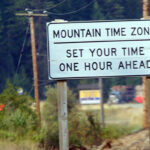Home »

Steam and sizzle collapsed in Riverside Drive
Book Review
By Derryll White
 Januska, Michael (2013). Riverside Drive.
Januska, Michael (2013). Riverside Drive.
I picked up an advanced reading copy of this novel, read the cover blurb and thought, perhaps unfairly, Loren D. Estleman. To me Estleman is the King of Detroit. She writes about the corrupting power of the Motor City’s former wealth and all of the amazing corruption it spawned. So that, perhaps unfairly, is part of the expectations that I started Januska’s book with.
I realized pretty quickly that Michael Januska is no rival of Estleman’s. He writes in a narrative voice, more describing the story than telling it. The subject matter could be interesting – gangsters, prohibition, corruption. But somehow the author takes all the steam and sizzle out of the story.
The writing gets interesting in small patches – particularly when dealing with sentiment and emotion. But overall the novel falls apart far too often with the storyline collapsing and an extraneous moment of emotion inserting itself only to vanish in the fractured flow of the gangster/prohibition narrative. The Joyce/Pound/Hemmingway insertions near the end are interesting as literate history, but really not part of the plot.
I would not recommend ‘Riverside Drive’ to general readers, and would caution those pulled to the 1920s prohibition/gangster world that there is little new in this book.
********
BORDERS – Near the imaginary line running down the middle he glanced back and forth between Detroit and the Border Cities. A mile of water separated them but these two communities seemed worlds apart. On the American side was a sprawling metropolis, factories that were putting the world on wheels, buildings that poked the sky; hustle and bustle, challenge and ambition.
In contrast, the Canadian side was still very green in places. Cottages and clapboard houses stood alongside the small factories along the shore; church steeples watched over the tree-lined streets. The downtown still had an old-world feel and the pace was slower. There was still less horsepower than horse-power.
MODERN WOMAN – Vera Maude felt that it probably took more courage to be a modern woman than it did to be a soldier in the Great War. Where the doughboy ran away with his buddies to take pot shots at strangers huddled in trenches, women were facing violence and injustice on a daily basis, oftentimes in their own home.
 – Derryll White once wrote books but now chooses to read and write about them. When not reading he writes history for the web at www.basininstitute.org .
– Derryll White once wrote books but now chooses to read and write about them. When not reading he writes history for the web at www.basininstitute.org .







